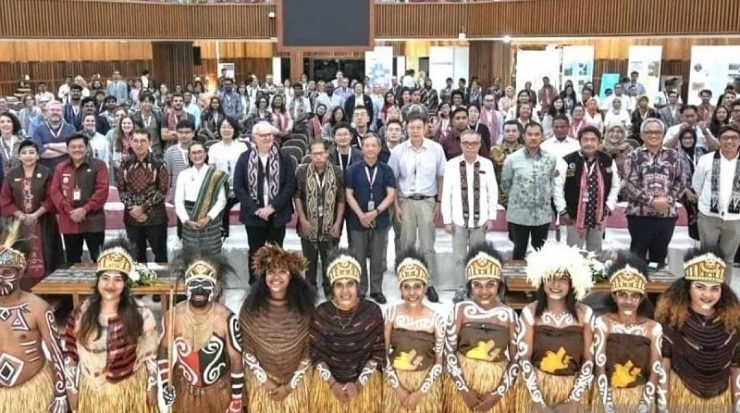INDONESIA’s Minister of Culture, Fadli Zon highlighted Indonesia’s rich history and culture which is a world heritage and diversity of civilization.
“Indonesia is home to more than 1,340 ethnic groups spread across more than 17,000 islands, as well as custodians of 718 languages, around 10 percent of the world’s linguistic heritage. More than just biodiversity, it is a diversity of civilization consisting of knowledge systems, rituals, oral epics, water and land management, artistic lineages, and maritime traditions. Here we can trace the traces of human life throughout millennia, even millions of years,” he said in a statement received in Jakarta, on Tuesday (10/28), 2025.
Apart from that, while attending the 2025 UISPP Inter-Regional Conference, the Minister of Culture conveyed plans for the repatriation of the Pithecanthropus Erectus fossil discovered by Eugène Dubois 135 years ago on the banks of the Bengawan Solo River which became a milestone in the history of the Indonesian nation in restoring national cultural rights and sovereignty.
“More than 50% of the world’s Homo erectus fossils were found in Indonesia. However, for more than a century, the world has discussed human origins using these fossils, while most Indonesians cannot see them in their homeland,” he said.
Fadli Zon explained that that era ends now, last month, the Ministry of Culture succeeded in repatriating the Dubois Collection from the Netherlands, totaling 28,131 fossils along with contextual notes from Java and Sumatra. This is a milestone for us, an act of restorative justice and historic reconciliation.
Apart from fossils, Minister Fadli also said that Indonesia has prehistoric caves holds a continuous narrative about human origins, adaptation, and creativity.
“Indonesia also has the world’s oldest narrative painting, 51,200 years old, which was found in the Leang Karampuang Cave, Maros, South Sulawesi. In West Sumatra, there is the Lida Ajer Cave which shows Homo Sapiens living in tropical rainforests more than 60,000 years ago,” he affirmed.
He explained that in Tiger Cave, South Sumatra, there is a cultural sequence from around 22,000 years ago to the early Metal Age. In East Kalimantan and Southeast Sulawesi there are also karst caves which contain thousands of pictographs about hunting, dancing, rituals, as well as depictions of the activities of Austronesian sailors who later shaped Southeast Asia and the Indo-Pacific.
Furthermore, he said that in this era of globalization and technological progress. Fast forward, the future of Indonesia’s cultural heritage is very dependent on efforts to preserve, utilize and sustainably develop it.
On the other hand, Fadli also emphasized Indonesia’s commitment to advancing culture, in accordance with the mandate of the 1945 Constitution, article 32 paragraph 1, which requires the state to advance national culture amidst world civilization and is committed to building Indonesia’s identity and positioning this nation as the World Capital of Culture through protecting and revitalizing cultural heritage, developing, utilizing and empowering culture as well as diplomacy, promotion and cultural cooperation.
Minister Fadli also called on the UISPP community, and the participants present to work together in building a common culture, especially Indonesia. [antaranews/photo special]
















